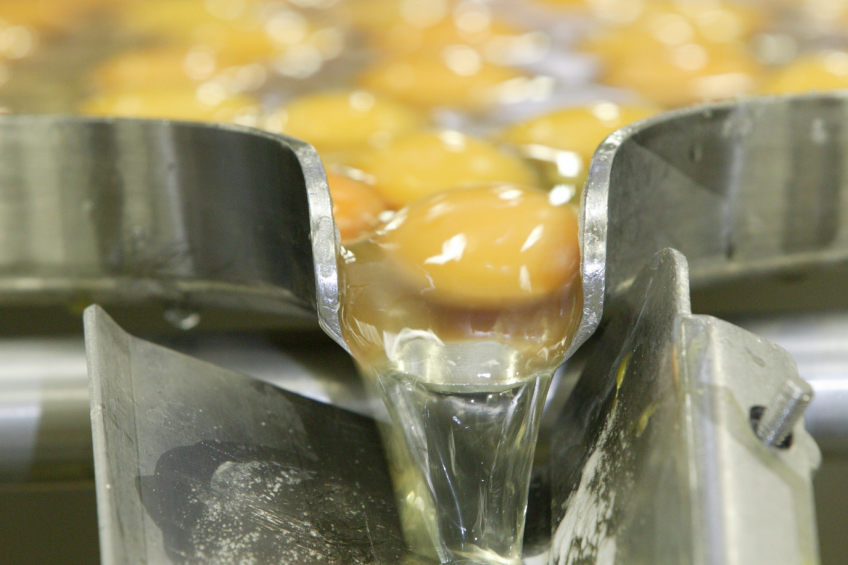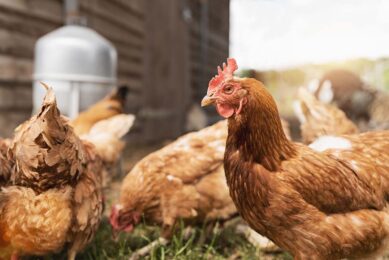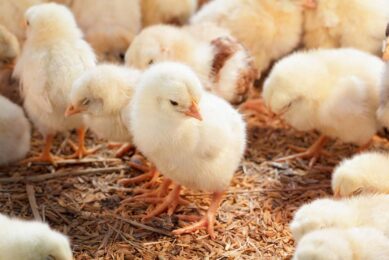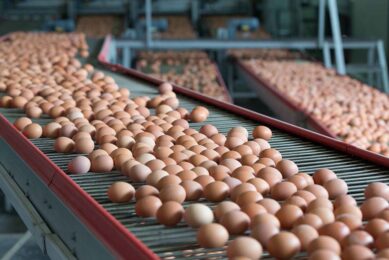Ukrainian cage egg imports: 10 questions answered

Ukrainian cage eggs flood the European ?market. Authorities in European countries have already indicated there is very little they can do against it – 10 pressing questioned are answered.
Ukrainian egg producers are allowed to export to the European Union. In November 2014, market leaders Ovostar Union and Avangardco sent their first shipments.
Ukraine’s European poultry export potential
The implementation of the association agreement between the European Union and Ukraine might be suspended until 2016, but agricultural products may still enter the European market. This gives Ukraine, which deals with very low consumer confidence as a result of the ongoing conflict in the country, better opportunities to export. Much to the fear and frustration of European poultry farmers – in the longer term, it may become even easier for Ukraine to export to the EU. It is part of the association agreement – designed to ensure better relations – in a free trade agreement.
Is the European egg market operating on a level playing field?
Whereas European poultry farmers have to abide by animal welfare regulations since a few years ago, Ukraine mostly produces cage eggs. And egg products (including a lot of dried egg powder) are now allowed on the European market. ‘A level playing field is missing’, government officials in Western Europe agree. But they add that there is little politics can do about
it, because the license has been issued from Brussels. There is, however, aquotum: in a first phase, there is a limit of up to 3,000 tonnes of processed eggs per year. And 1,500 tonnes of egg product, increasing to 3,000 tonnes of egg product after five years. We are referring to export without import duties here.
Does the EU need to help the Ukrainian egg industry?
In this case, it is not concerned with Ukrainian agricultural businesses that fall over if they are not allowed to export to Europe. A market study by Euwep already pointed out that the Ukrainian egg sector can also survive on the European market with the current import taxes – especially so because of the low production costs.
Who is the big player in the Ukrainian egg industry?
Avangardco is not just the egg giant of Ukraine, but it is also the second largest producer of shell eggs and egg products in the world. Avangardco is also operationally active in poultry, animal feed and other activities. Nearly 23 million laying hens were used in 2013. Much of the export goes to the Middle East. In addition, China and North America are seen as extra growth markets. Avangardco employs over 4,500 people and, despite lodging its holding in Cyprus (for tax reasons), it is active on Ukrainian ground. 19 poultry farms are distributed all over the country, even in war-tormented Eastern Ukraine and the Crimean peninsula annexed by Russia.
Avangardco: Ukrainian egg giant – what are the costs of war?
The companies in Eastern Ukraine have nearly shut down and in Crimea the new power is trying to expropriate and ‘nationalise’ Avangardco’s rearing company for pullets via an injunction. Avangardco will probably go to the International Tribunal in The Hague if it loses its activities in Crimea – which are now at a standstill – and thereby losing at least €200 million of investments.
Who owns Avangardco?
Owner and founder is the 40-year-old Oleg Bachmatjoek, a wealthy millionaire (Forbes Ukraine estimates his net worth at 623 million, 13th on the list of richest Ukrainians) that led Avangardco Investment to the position of second largest egg producer in the world in less than five years. “He had bought up 150, 160 egg companies in Ukraine in no time and before we knew it, he took the lead,” explain the owners of its largest competitor Ovostar Union, according to Forbes Ukraine. Avangardco has the largest market share by far.
Avangardco’s owner – what is his global reach?
He is also owner and founder of UkrLandFarming, which is listed in the top ten largest agricultural companies in the world. It is one of the largest because of the nearly immeasurable stretches of land the agro-giant owns in Ukraine (and supposedly mainly leases out to the Chinese). As the American Cargill bought 5% of the shares in UkrLandFarming last year, the value of the company is estimated at $ 4 billion – although this may be less (temporarily) as a result of the current crisis in Ukraine.
What role does politics play in Ukraine’s egg industry ?
An important role. It is striking that in Ukrainian politics, there is a huge agricultural lobby going on. Because of the free trade
agreement a lot of oligarchs and executives seem to support the party of President Petro Porosjenko. One of them is Joeriy
Kosjoek. Until this summer, the CEO of the nation’s largest chicken producer MHP, he is now the main political advisor of
Porosjenko.
What recent scandal involved EU funds?
In 2012, there was big fuss because MHP had received hundreds of millions of euros to export-credit insurance and loans of all kinds for the construction of the largest poultry house of Europe. According to earlier research carried out by, among others, the German channel ZDF, some dozens of European millions infused the Ukrainian egg market. Both the German credit insurer Euler Hermes as well as the German Government played a role in this. Furthermore, it was known that they were cage eggs, which did not correspond with German or European standards.
What does Ovostar do?
They sell under their own brand name Ovostar as well as Yasensvit. They deliver various egg products to Nestlé, Kraft Foods and McDonald’s, and employ 1,300 people.
Ovostar Union now has a turnover of $150 million, but with their access to the European market, has the short-term goal to increase this to half a billion dollars. As a matter of fact, Ovostar is in the books as a Dutch company, because they are registered at the Jan van Goyenkade in Amsterdam.
What difference does the egg origin to the consumer?
“The eggs themselves are fine,” says René Kremers, CEO of Difco International and agricultural consultant in the Ukraine, among other countries. “Obviously, this is about the story behind it. Animal welfare has still not been embraced as a topic in Ukraine. They also don’t understand that European consumers are willing to pay four times as much for a free-range egg.” So Kremers suspects that producers like Avangardco and Ovostar will not adjust their policy. ‘That means it is up to the animal welfare organisations and the supermarkets in Europe to take a stand against these cage eggs. Together they will get the Ukrainian producers to their knees, if those eggs are not accepted. And what they will do next? “They will just refocus on the Middle East and China. Maybe less prestigious, but a larger market with fewer requirements.”
“The eggs themselves are fine,” says René Kremers, CEO of Difco International and agricultural consultant in the Ukraine, among other countries. “Obviously, this is about the story behind it. Animal welfare has still not been embraced as a topic in Ukraine. They also don’t understand that European consumers are willing to pay four times as much for a free-range egg.” So Kremers suspects that producers like Avangardco and Ovostar will not adjust their policy. ‘That means it is up to the animal welfare organisations and the supermarkets in Europe to take a stand against these cage eggs. Together they will get the Ukrainian producers to their knees, if those eggs are not accepted. And what they will do next? “They will just refocus on the Middle East and China. Maybe less prestigious, but a larger market with fewer requirements.”
Join 31,000+ subscribers
Subscribe to our newsletter to stay updated about all the need-to-know content in the poultry sector, three times a week. Beheer
Beheer








 WP Admin
WP Admin  Bewerk bericht
Bewerk bericht